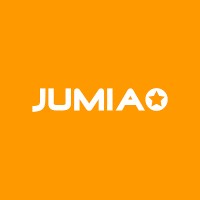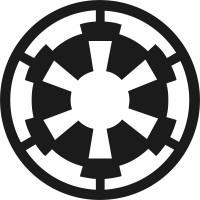Company Cyber Security Posture
NANA
NA Company Details
NA
NA
NA
NA
NA
NA
Scan still pending
NA
NA
Between 200 and 800
This score is AI-generated and less favored by cyber insurers, who prefer the TPRM score.
 NA Global Score
NA Global Score.png)

Company Scoring based on AI Models
| Model Name | Date | Description | Current Score Difference | Score |
|---|---|---|---|---|
| AVERAGE-Industry | 03-12-2025 | This score represents the average cybersecurity rating of companies already scanned within the same industry. It provides a benchmark to compare an individual company's security posture against its industry peers. | N/A | Between 200 and 800 |
Company Cyber Security News & History
| Entity | Type | Severity | Impact | Seen | Url ID | Details | View |
|---|
Company Subsidiaries

NA
Access Data Using Our API

Get company history
.png)
NA Cyber Security News
Mother of All Breaches: a Historic Data Leak Reveals 26 Billion Records
The MOAB contains 26 billion records over 3,800 folders, with each folder corresponding to a separate data breach. While this doesn't mean that ...
NetEase to shut down public cloud service amid rising AI competition
NetEase is discontinuing its public cloud service as competition in China's cloud market increases, driven by AI-related growth.
China uses DeepSeek, other AI models, for surveillance and information attacks on US
China-based actors have been using ChatGPT along with DeepSeek models to generate phishing email and disinformation attacks on the U.S. “on ...
NetEase Cloud Music and Starship Entertainment: A K-pop Powerhouse Partnership
NetEase Cloud Music, one of China's leading music streaming platforms, has partnered with Starship Entertainment, a prominent South Korean ...
Threat Actors Leveraging Free Email Services To Attack Govt & Education Entities
In recent years, threat actors have increasingly targeted free email services to compromise government and educational entities.
China’s tech regulator meets Big Tech bosses, including Didi CEO
Didi founder and CEO Cheng Wei made his first appearance at the annual event since China launched a cybersecurity probe into the firm in 2021.
Obama-Xi Agreement Will Not Resolve China Cybersecurity Threat
The commitment signals bilateral goodwill, there are a number of reasons to doubt its effectiveness in curbing commercial espionage.
India Bans 54 Chinese Apps Including That From Sea, Alibaba, NetEase, Tencent
India's Ministry of Electronics and Information Technology has banned 54 apps it says are of Chinese origin, including Sea Ltd (NYSE: SE) ...
The 20 biggest data breaches of the 21st century
The 20 biggest data breaches of the 21st century · 1. Chinese surveillance database · 2. Yahoo · 3. Real Estate Wealth Network · 4. Aadhaar [tie with Alibaba].

NA Similar Companies

Independiente / Freelance
La etimología de la palabra deriva del término medieval inglés usado para un mercenario (free-independiente o lance-lanza), es decir, un caballero que no servía a ningún señor en concreto y cuyos servicios podían ser alquilados por cualquiera. El término fue acuñado inicialmente por Sir Walter Sc

Jumia Group
Jumia (NYSE :JMIA) is a leading e-commerce platform in Africa. It is built around a marketplace, Jumia Logistics, and JumiaPay. The marketplace helps millions of consumers and sellers to connect and transact. Jumia Logistics enables the delivery of millions of packages through our network of local p

Mega Holdings
Our vision is to be an ideal leading international network marketing company making website ownership available to everyone, providing a simple state-of-the-art and professionally-developed online product and multi-level training to empower and develop the youths into independent business owners. Th

Avnet
Avnet is a global electronic components distributor with extensive design, product, marketing and supply chain expertise for customers and suppliers at every stage of the product lifecycle. For the past 100 years, Avnet has helped its customers and suppliers around the world realize the transformati

The Death Star
The mission of the Death Star is to keep the local systems "in line". As we have recently dissolved our Board of Directors, there is little resistance to our larger goal of universal domination. Our Stormtroopers are excellent shots and operate with our Navy, and are fielded like marines - sep

Swiggy
Swiggy is India’s pioneering on-demand convenience platform, catering to millions of consumers each month. Founded in 2014, its mission is to elevate the quality of life for the urban consumer by offering unparalleled convenience. With an extensive footprint in food delivery, Swiggy Food collaborate

Frequently Asked Questions
Explore insights on cybersecurity incidents, risk posture, and Rankiteo's assessments.
NA CyberSecurity History Information
How many cyber incidents has NA faced?
Total Incidents: According to Rankiteo, NA has faced 0 incidents in the past.
What types of cybersecurity incidents have occurred at NA?
Incident Types: The types of cybersecurity incidents that have occurred include .
Additional Questions
What Do We Measure?
















Every week, Rankiteo analyzes billions of signals to give organizations a sharper, faster view of emerging risks. With deeper, more actionable intelligence at their fingertips, security teams can outpace threat actors, respond instantly to Zero-Day attacks, and dramatically shrink their risk exposure window.
These are some of the factors we use to calculate the overall score:
Identify exposed access points, detect misconfigured SSL certificates, and uncover vulnerabilities across the network infrastructure.
Gain visibility into the software components used within an organization to detect vulnerabilities, manage risk, and ensure supply chain security.
Monitor and manage all IT assets and their configurations to ensure accurate, real-time visibility across the company's technology environment.
Leverage real-time insights on active threats, malware campaigns, and emerging vulnerabilities to proactively defend against evolving cyberattacks.




